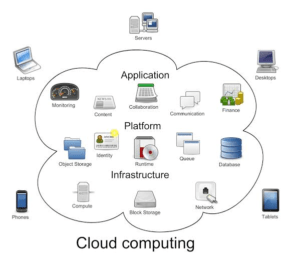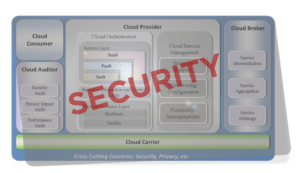
In the past couple of years, businesses of varied sizes, locations, and industries have come forward to adopt cloud services. In fact, as the years go by, more businesses are joining the bandwagon. According to surveys, the number of businesses using the public cloud went up to 92% in 2018, from 89% in 2017. This year, at least 84% of businesses have claimed to have a hybrid cloud strategy, combining public and private clouds. Going by the industry predictions, the trend will go on and by next year most companies will either have only-cloud or mostly-cloud policies.
So, what is it that makes businesses embrace cloud computing in such huge numbers? What exactly does adopting a cloud setup offer to make the businesses prefer it over other options? Let’s find out the benefits that cloud computing has to offer to businesses.
A cost-efficient option

Perhaps, the best thing about cloud computing is that it does need the business to spend money on buying and maintaining equipment, which leads to a significant reduction in costs. There is no need to invest money in utilities, facilities, hardware, or building a data center for your business. In fact, there is no need for even an IT team to deal with the operations of your cloud database because you have the staff from your cloud provider looking after that.
It is cost-efficient even when it comes to downtime because it is rare to see downtime in cloud systems. So, there’s no need for you to worry about spending money and time on fixing the issues of downtime.
Security from data breaches

Keeping the data safe from potential threats is one of the main concerns of businesses of all sizes. Cybercrimes and data breaches are nothing new in today’s times and incidents like these can wreak havoc on revenues, branding, and customer loyalty. The high-end security features offered by the cloud guarantee that your data is safely managed and stored.
Cloud service providers know that their reputation depends on their data safety measures, and thus, from encryption, and access control to authentication, they offer everything. Since the baseline safety measures are strong enough, all that the businesses need to do is add a couple of their own safety measures and that tightens the security completely.
The opportunity to scale

Companies come with varied IT needs. It goes without saying that an enterprise with over a thousand employees will not have the exact same requirements as that of the one with a hundred employees at the most. And, that is what makes it a great option for businesses. After all, it lets the businesses scale up (and even down) in the IT department as per its needs.
If your business has a shifting bandwidth demand, then cloud solutions would be perfectly suited for you. You can just increase the cloud capacity when the need arises without investing in the physical infrastructure. The level of agility that a business can get this way really helps it have an edge over its competitors. Moreover, you get high-end resources working for your business with no upfront investment and you are free from worrying about in-house IT issues.
Keeping your people in the loop

Cloud computing means you get mobile access to data through internet devices. So, you will never have to worry again about someone not being in the loop. Employees who are sent overseas for work or who are handling packed schedules find it easier to stay updated with coworkers and clients this way.
Storing, retrieving, recovering, and processing data needs nothing more than a few clicks when you have a cloud. Your people have access to the work at all times, from any device, and from any corner of the world with just an internet connection. To top it off, the system updates are also the responsibility of the service provider and these are carried out off-site. So, there are no maintenance hassles to be dealt with on your part.
Easier to recover from disasters

Organizations are as concerned about data loss as they are about data security. A great thing about keeping the data in the cloud is that it’ll always be there, even when your computer gets damaged. So, in situations of power outages or natural disasters, recovery of data will not turn out to be one of your first worries.
Regardless of how well you keep your on-premise computers protected, there are certain situations that are beyond anyone’s control. And, it’s not just about the viruses and malware. Computers can have hardware deterioration, user errors, or simply malfunctions that lead to data loss. This is not something you’ll have to worry about when you rely on cloud infrastructure.
Exercise complete control over data

It is natural for a company to want to have complete control over its data. After all, in the wrong hands, data can be used to seriously harm the business. The good thing is that with the cloud, you have absolute control and visibility over the data. It is up to you to decide who gets access to what and how much of the crucial data.
This not just keeps your data protected but also helps in streamlining your work because your employees understand the work that is cut out for them. Besides, it makes it easy to collaborate among the employees because there’s no need to make copies of a document and distribute it. The employees can work on the same document at different times.
Adoption of cloud computing is on the rise, and the six benefits of it listed above offer ample reasons behind that. After all, from production, revenue generation, and security, to collaboration, there’s nothing that the cloud cannot smoothen out for a business. It does away with all the hassles that on-premise IT solutions bring with itself, and it gives you a competitive edge: what more can a business want? So, now the question is: when are you making your business cloud optimized?